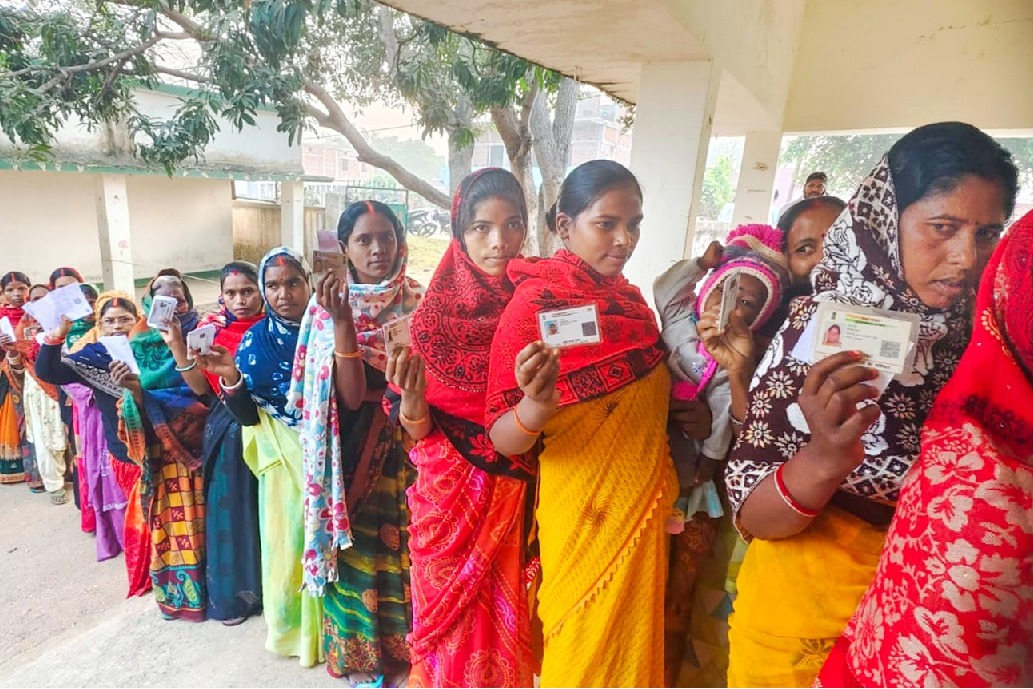
Jharkhand: Voting for the second and final phase of the Jharkhand Assembly elections commenced on Wednesday, covering 38 constituencies across 12 districts.
A total of 14,218 polling stations have been established for this phase, with 2,414 located in urban areas and 11,804 in rural regions. Comprehensive security measures are in place, involving 585 companies of central paramilitary forces, 60 companies of the Jharkhand Armed Police, and 30,000 personnel from local police and home guards to ensure a fair election process.
Polling stations will typically remain open until 5 p.m., although 31 sensitive booths will close an hour earlier at 4 p.m. The voting is being monitored through webcasting, with cameras set up at all locations.
This phase includes constituencies from three divisions: 18 each from Santhal Pargana and North Chotanagpur, and two from South Chotanagpur. Of the 528 candidates contesting, there are eight reserved seats for Scheduled Tribes, three for Scheduled Castes, and 27 general seats. Approximately 1.23 crore voters are eligible to cast their votes.
Mandu in Hazaribagh district is noted as the largest constituency by area, while Jharia in Dhanbad is the smallest. Bokaro has the highest voter registration with 582,101 voters, while Littipara in Santhal Pargana has the least at 217,388 voters.
Key candidates in this phase include Chief Minister Hemant Soren of the JMM from Barhait, BJP state president Babulal Marandi from Dhanwar, and Assembly Speaker Rabindra Nath Mahato of the JMM from Nala. Other notable contenders are Congress’ Deepika Pandey Singh from Mahagama, Irfan Ansari from Jamtara, AJSU Party chief Sudesh Mahto from Silli, and Kalpana Soren, the Chief Minister’s wife, from Gandey in Giridih district.
Barhait is particularly in focus as Hemant Soren aims to maintain the JMM’s stronghold there since 1990, having represented the constituency since 2014. Over the past 35 days, political rallies have been organized by star campaigners from both parties, addressing issues crucial to Jharkhand’s social and cultural context, including themes like ‘Roti, Beti, Maati’ (livelihood, women, and land), tribal identity, and welfare programs.
Vote counting is scheduled for November 23.
